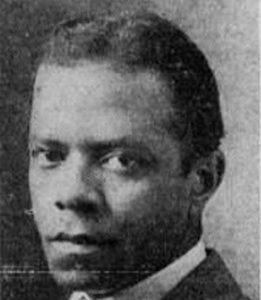
Eugene Gordon
*Eugene Gordon was born on this date in 1891. He was a Black journalist, editor, fiction writer, and social activist.
Born in Oviedo, Florida, he was raised in New Orleans and lived through the Robert Charles riots. He attended Howard University and then Boston University, studying English and journalism. 1916, Gordon married Edythe Mae Chapman, a short story writer and poet. They separated in 1932 and divorced in 1942. His second wife, June Croll, was a noted labor organizer; they had a son.
On leaving school, Gordon served in World War I in Europe. After the war, he became a staff writer for the Boston Daily Post and an assistant feature writer in 1919. During the 1920s, he began publishing fiction and nonfiction in periodicals like American Mercury, Scribner's Magazine, The Nation, and Plain Talk, as well as in the Annals of the American Academy of Political and Social Science. His fiction ranged from stories about African American life to a war story set in France. His short story "Game" won first prize in Opportunity magazine's 1927 literary contest.
1925, Gordon organized a black academic group, the Saturday Evening Quill Club. Its founding members included fellow writers Helene Johnson and Dorothy West, and Gordon served as its president. Out of this grew an annual literary magazine, Saturday Evening Quill, which Gordon edited during its brief existence from 1928 to 1930. Gordon joined the American Communist Party in 1931 and co-founded the Boston John Reed Club, becoming the first editor of the club magazine Leftward. He moved to the Soviet Union for a year (1937–38) and became a reporter for the Moscow Daily News.
On his return to the United States, Gordon became a contributing editor, writer, and reporter for the leftist Daily Worker (1938–1946). Gordon's nonfiction writing about social issues increased after he became a communist. Throughout the 1930s and 1940s, he wrote about such topics as black labor, the rape of black women, the limits faced by black writers in an oppressive culture, and African Americans' relationship to political radicalism; this last essay appeared in Nancy Cunard's 1933 book Negro: An Anthology.
By the 1950s, Gordon had joined the radical leftist weekly National Guardian staff, for which he reported on the 1955 Bandung Conference in Indonesia, which was an essential step in developing the Non-Aligned Movement. In the late 1950s, he wrote a column for the black press that lasted about two years, "Another Side of the Story." He wrote primarily on subjects related to racial discrimination and social justice. He published some fiction under pseudonyms, using Egor Don (which combines his first initial and last name) and (more rarely) Clark Hall and Frank Lynn.
Gordon effectively retired from public life in the 1960s and turned his energies to watercolor painting. When Gordon died on March 18, 1974, Henry Winston—then the chairman of the American Communist Party—praised him as "a dedicated partisan in the fight on many fronts for Democracy and Socialism." A more recent commentator assesses Gordon as a "hard-working if uninspired" journalist of admirable dedication. His papers, including correspondence and various unpublished writings, are held by the New York Public Library.
To be a Writer
To Become an Editor
To Become a Desktop Publisher